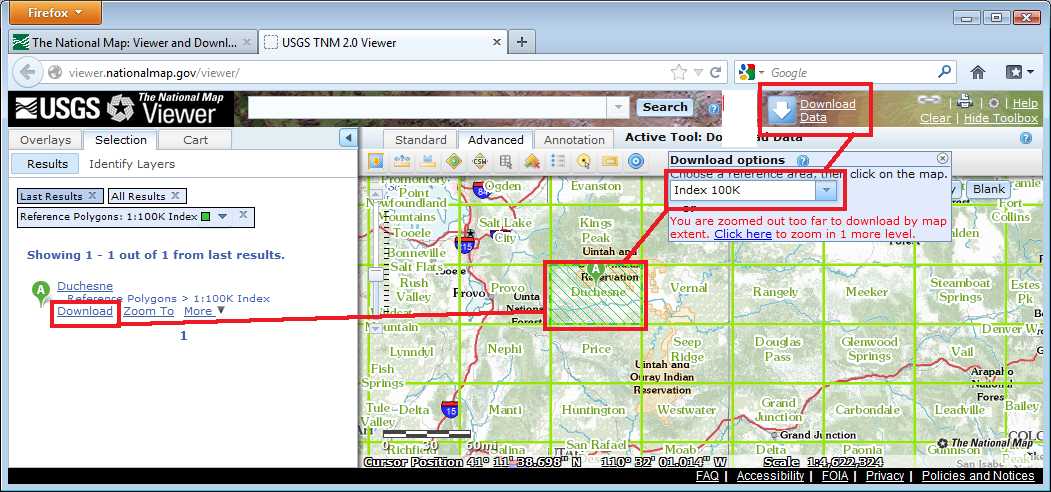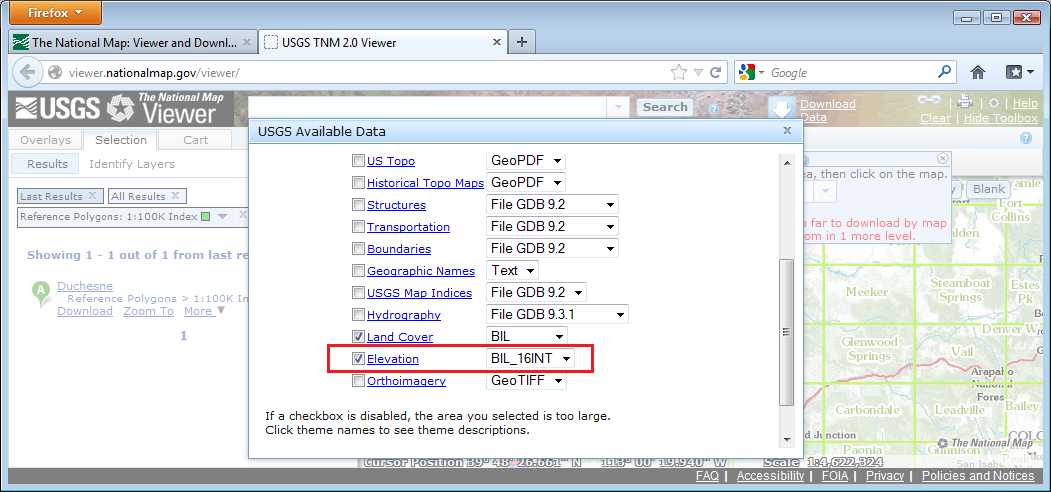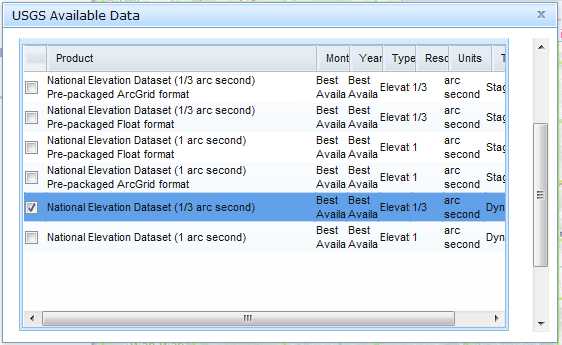Difference between revisions of "The National Map"
(→How to download) |
(→How to download) |
||
| Line 20: | Line 20: | ||
* Using the Zoom tool, you can zoom into the area you are interested in. | * Using the Zoom tool, you can zoom into the area you are interested in. | ||
| − | * | + | * Select the area by clicking the template area desired. |
| Line 28: | Line 28: | ||
| − | * | + | * Select the types of data required. Use the '''BIL_16INT''' format for NED data and '''BIL''' for Land COver data. |
| Line 34: | Line 34: | ||
| − | * | + | * Select from the available data for the requested area. Use '''Best Avaiable''' and '''Dynamic'''. |
| − | * | + | * |
== How to use the seamless NED data with the Pathloss program. == | == How to use the seamless NED data with the Pathloss program. == | ||
Revision as of 14:53, 27 September 2012
To go directly to the National Map viewer page, go here: http://viewer.nationalmap.gov/viewer/
The National Elevation Dataset (NED) is a new raster product assembled by the U.S. Geological Survey. NED is designed to provide National elevation data in a seamless form with a consistent datum, elevation unit, and projection. Data corrections were made in the NED assembly process to minimize artifacts, perform edge matching, and fill sliver areas of missing data. NED has a resolution of one arc-second (approximately 30 meters) for the conterminous United States, Hawaii, and Puerto Rico and a resolution of two arc-seconds for Alaska. More info can be found at http://gisdata.usgs.net/NED/.
SRTM 30m and SRTM 90m data is also available from the the USGS Seamless Distribution site. Information on the SRTM data can be found at http://srtm.usgs.gov/ .
How to download
The data can be downloaded at http://viewer.nationalmap.gov/viewer/.
There is online help available by clicking on the Tutorial link in the header of the page.
- Select the Download button, located on the top right hand side of the display.
- Select which download template to use..
- Using the Zoom tool, you can zoom into the area you are interested in.
- Select the area by clicking the template area desired.
- Select the types of data required. Use the BIL_16INT format for NED data and BIL for Land COver data.
- Select from the available data for the requested area. Use Best Avaiable and Dynamic.
How to use the seamless NED data with the Pathloss program.
Decompress the dataset to its own directory. The dataset is comprised of 16 files…
*.aux *.hdr METADATA.dbf Metadata.xml *.bil *.prj METADATA.prj NED DataDictionary.pdf *.bil.aux.xml *.stx METADATA.shp NED_Release_Notes_June10.pdf *.blw meta1.html METADATA.shx output_parameters.txt
In Version 4.0 make sure to use NED CONUS for data in Alaska. Do not use NED Alaska.
The NED (CONUS) data uses the NAD83. NAD27 Coordinates are transformed automatically.
The SRTM data uses the WGS84. NAD83 and NAD27 Coordinates are transformed automatically.
- In the Pathloss program click Configure – Terrain Database and depending on the dataset select either NED CONUSor NED Alaska from the drop down list.
- Click Setup Primary (or Setup Secondary depending on your selection).
- Click the file button and browse to find and load the file with the BIL extension. The program is now setup to use the selected BIL file.


